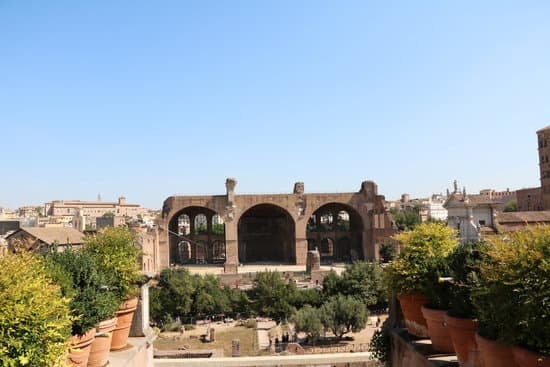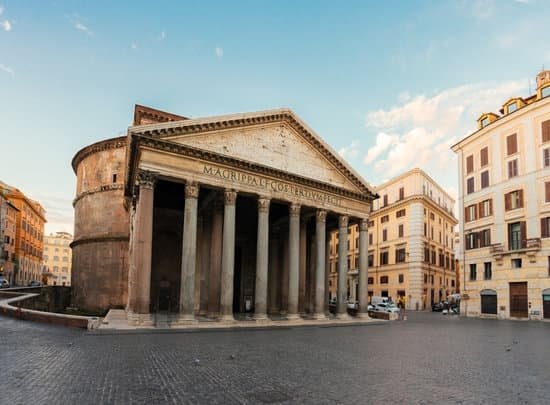Italy has long been considered a dream destination for travelers around the world, and it’s easy to see why. From its rich history and stunning architecture to its world-renowned cuisine and picturesque landscapes, Italy offers a truly unforgettable experience.
When planning a trip to Italy, there are certain aspects to consider and prepare for to ensure a smooth and enjoyable journey. In this article, we will provide you with essential insights on what to expect when traveling to Italy.
One of the main reasons why Italy is such a sought-after travel destination is its incredible diversity. Whether you’re exploring the bustling streets of Rome, admiring the art in Florence, or relaxing on the Amalfi Coast, each region in Italy offers its own unique charm and character. The country’s vibrant culture, delicious food, and warm hospitality make it an irresistible choice for any traveler looking for an enriching experience.
As you embark on your journey to Italy, it’s important to be well-prepared. From understanding Italian customs and traditions to navigating the language barrier and planning your itinerary efficiently, being informed will help you make the most of your time in this beautiful country. So sit back, relax, and let us guide you through what to expect when traveling to Italy.
Getting Ready
Italy is a top travel destination for many reasons – from its rich history and stunning architecture to its world-renowned cuisine and beautiful landscapes. Before embarking on your trip to Italy, it is important to make sure you are well-prepared for all aspects of your journey. From booking flights and accommodations to brushing up on Italian customs and traditions, there are several key factors to consider when planning your visit to this enchanting country.
Documentation and Visa Requirements
One of the first things to tackle when preparing for your trip to Italy is making sure you have all the necessary documentation in order. Depending on your nationality, you may need a visa to enter Italy, so be sure to check the requirements well in advance of your departure date. Additionally, make sure your passport is valid for at least six months beyond your planned stay in Italy to avoid any issues upon arrival.
Currency Exchange and Budgeting
It is also important to consider currency exchange rates and plan your budget accordingly for your trip to Italy. The official currency in Italy is the Euro, so make sure to exchange some money before arriving or withdraw cash from ATMs upon arrival. Researching average prices for meals, transportation, and activities can help you budget appropriately and ensure a smooth travel experience without breaking the bank.
Packing Essentials
When packing for Italy, consider the season in which you will be visiting as weather can vary significantly throughout the country. In general, it is wise to pack comfortable walking shoes, lightweight layers for fluctuating temperatures, sunscreen, sunglasses, as well as any adapters or converters you may need for electronic devices.
Packing essentials like a travel guidebook or maps can also come in handy when navigating unfamiliar cities and landmarks during your visit. By taking these steps before departing for Italy, you can ensure a more enjoyable and stress-free travel experience while exploring all that this captivating country has to offer.
Italian Culture
When traveling to Italy, visitors can expect to be immersed in a vibrant culture rich in history, art, and traditions. Italians are known for their warm hospitality and strong family values, which play a significant role in shaping their society. One of the most iconic Italian customs is the concept of “la dolce vita,” or the sweet life, which emphasizes enjoying the simple pleasures and savoring every moment.
Family-Centric Society
Italian culture places a strong emphasis on family, with many gatherings centered around food and shared meals. Family ties are considered sacred, and it is common for generations to live near each other and maintain close relationships. Respect for elders is also a key aspect of Italian culture, with grandparents often playing an integral role in the lives of their grandchildren.
Artistic Heritage
Italy has a long-standing reputation as a center of art and creativity, with famous artists such as Leonardo da Vinci, Michelangelo, and Botticelli hailing from this country. Visitors can expect to be mesmerized by the stunning architecture, intricate sculptures, and breathtaking paintings that adorn churches, museums, and public spaces throughout Italy. Art is deeply ingrained in Italian culture, reflecting a deep appreciation for beauty and aesthetics.
Festivals and Celebrations
Italians are known for their love of celebrating life through various festivals and events held throughout the year. From colorful carnivals to religious processions to lively street fairs, there is always something happening in Italy. Visitors can expect to witness traditional dances, hear music that reflects regional heritage, and indulge in delicious local cuisine during these festive occasions. Embracing the spirit of celebration is an essential part of experiencing Italian culture during your travels.
Italian Cuisine
One of the most important aspects of Italian cuisine is the emphasis on quality ingredients. Locally sourced produce, cheeses, olive oil, and meats play a crucial role in creating authentic Italian dishes. Travelers can look forward to savoring the flavors of ripe tomatoes in a Caprese salad, enjoying a creamy gelato made with fresh fruits, or indulging in a hearty plate of risotto with saffron.
In addition to delicious food, Italy is also famous for its exquisite wines. Each region in Italy boasts its own unique wine varieties such as Chianti from Tuscany or Barolo from Piedmont. Visitors can partake in wine tastings at vineyards throughout the country and learn about the winemaking process firsthand. Whether you’re a fan of bold reds or crisp whites, Italy offers a diverse selection of wines to accompany your meals during your travels.
| Italy Food and Wine Highlights | Description |
|---|---|
| Pasta Dishes | Try classic pasta dishes such as spaghetti carbonara and lasagna |
| Regional Wines | Explore unique wine varieties from different regions like Chianti and Barolo |
| Gelato Tastings | Satisfy your sweet tooth with creamy gelato made from fresh fruits |
Language Barrier
Italy is a country filled with rich history, stunning architecture, and delicious cuisine. When traveling to Italy, there are certain things you can expect that may differ from other destinations. One of the key aspects to keep in mind is the language barrier. While English is widely spoken in tourist areas, especially in major cities like Rome and Florence, it is always helpful to have some knowledge of basic Italian phrases to navigate through everyday interactions.
Learning simple greetings like “ciao” for hello and goodbye, “per favore” for please, and “grazie” for thank you can go a long way in showing respect for the local culture. Italians appreciate when visitors make an effort to speak their language, even if it’s just a few words. Additionally, having a pocket dictionary or language translation app can be handy when communicating in restaurants or shops where English may not be as common.
In more remote areas or smaller towns in Italy, you may encounter fewer people who speak English fluently. In such cases, patience and a positive attitude will serve you well.
Italians are known for their warmth and hospitality, so don’t be afraid to try out your basic Italian phrases and embrace any opportunity to engage with the locals. By being open-minded and respectful of the language differences you encounter during your travels in Italy, you’ll create memorable experiences and meaningful connections with the people you meet along the way.
| Key Phrases | Translation |
|---|---|
| ciao | Hello/Goodbye |
| per favore | Please |
| grazie | Thank you |
Must-See Destinations
Italy is a country rich in history, art, and culture, making it a top travel destination for tourists from around the world. From ancient ruins to stunning landscapes and beautiful coastlines, Italy has something to offer for every type of traveler. When planning your trip to Italy, there are some must-see destinations that you should definitely include in your itinerary.
Here are some of the top attractions in Italy that you don’t want to miss:
- The Colosseum in Rome: This ancient amphitheater is one of the most iconic landmarks in Italy and a symbol of the Roman Empire’s grandeur.
- The Leaning Tower of Pisa: Located in the picturesque town of Pisa, this famous tower is known for its tilt and is a popular spot for tourists to take photos.
- The canals of Venice: Explore the charming city of Venice by taking a gondola ride along its intricate network of canals or simply stroll through its narrow streets and bridges.
When visiting these must-see destinations in Italy, be prepared for large crowds, especially during peak tourist seasons. It’s important to book tickets in advance for popular attractions to avoid long lines and ensure you have enough time to explore each place thoroughly. Additionally, consider hiring a local tour guide to gain deeper insights into the history and significance of these iconic landmarks.
Exploring these top attractions will give you a glimpse into Italy’s diverse history and cultural heritage. Whether you’re interested in art, architecture, or simply soaking in the beauty of this magnificent country, visiting these must-see destinations will surely make your trip to Italy unforgettable.
Transportation
Italy offers a variety of efficient transportation options for travelers to explore the country’s beautiful cities, historical sites, and picturesque landscapes. From trains to buses and even water taxis, visitors have several ways to move around Italy conveniently. Here are some key transportation options to consider when traveling to Italy:
- Trains: Italy has an extensive train network that connects major cities and regions, making it easy for travelers to hop from one destination to another. The high-speed trains, like the Frecciarossa and Frecciargento, are popular choices for long-distance travel.
- Buses: For those looking to explore smaller towns or rural areas, buses are a reliable mode of transportation in Italy. FlixBus and MarinoBus are two companies that offer comfortable and affordable bus services throughout the country.
- Rental cars: Renting a car can be a convenient option for travelers who want more flexibility in their itinerary. However, keep in mind that driving in Italian cities can be chaotic, especially in large metropolitan areas like Rome or Naples.
When considering what to expect when traveling to Italy concerning transportation, it’s essential to plan your routes ahead of time and take into account any potential delays or strikes that may affect your travel plans. Additionally, familiarizing yourself with the local transport schedules and purchasing tickets in advance can help streamline your journey across Italy.
Overall, transportation in Italy is relatively efficient and accessible, providing travelers with opportunities to explore the diverse regions of the country with ease. Whether you prefer scenic train rides through the countryside or navigating bustling city streets by bus or tram, Italy offers a wide range of transportation choices that cater to different preferences and travel styles.
Weather and Packing Tips
When traveling to Italy, it is crucial to consider the weather and pack accordingly to make the most of your trip. The weather in Italy varies greatly depending on the season and region you are visiting. In general, Italy experiences hot summers and mild winters, but there can be significant differences between the north and south of the country. It is essential to check the weather forecast for your specific destination before packing.
During the summer months, especially in popular tourist destinations like Rome, Florence, and Venice, temperatures can soar above 30°C (86°F). Lightweight clothing, sunblock, sunglasses, a hat, and comfortable walking shoes are essential items to pack. You may also want to bring a reusable water bottle to stay hydrated while exploring the beautiful sights that Italy has to offer.
In contrast, winter in Italy can be cold and rainy, particularly in the northern regions or mountainous areas. If you plan on visiting during this time of year, be sure to pack layers including sweaters or jackets, scarves, gloves, and waterproof shoes.
Additionally, if you are planning on exploring historical sites or churches during your visit to Italy regardless of the season remember that modest clothing is required for entry. By preparing for the weather conditions based on the time of year you will be traveling what you pack will enable you to have a more enjoyable experience in this captivating country.
Safety Tips
Italy is a country that offers a perfect blend of rich history, stunning architecture, delectable cuisine, and warm hospitality. Its diverse cultural heritage and picturesque landscapes make it a top travel destination for people from all over the world. When planning a trip to Italy, there are several key factors to consider in order to ensure a safe and enjoyable experience.
Before embarking on your journey to Italy, it is important to make necessary preparations to ensure a smooth trip. This includes familiarizing yourself with the local culture and customs, understanding the language barriers you may encounter, and researching the must-see attractions in the different regions of Italy. By being well-prepared and informed, you can navigate through Italy with ease and fully immerse yourself in its beauty.
When traveling to Italy, safety should always be a top priority. Whether you are exploring the bustling streets of Rome or relaxing on the sun-kissed beaches of Sicily, it is essential to remain vigilant and aware of your surroundings at all times. By following common sense safety tips such as safeguarding your belongings, avoiding isolated areas at night, and staying informed about any potential security risks in certain regions, you can enjoy a worry-free trip to Italy.
Remember to always trust your instincts and seek help from local authorities or embassy if needed. With the right precautions in place, you can relax and savor every moment of your Italian adventure knowing that you have taken steps to stay safe during your travels in Italy.
Frequently Asked Questions
What Do I Need to Know About Travel to Italy?
Traveling to Italy is an exciting experience filled with rich history, delicious cuisine, and stunning landscapes. It’s important to know that Italy is part of the Schengen area, so if you’re a US citizen, you can stay for up to 90 days visa-free within a 180-day period.
Currency used in Italy is the Euro, and English is widely spoken in tourist areas.
What Does a US Citizen Need to Travel to Italy?
As a US citizen traveling to Italy, there are a few things you need to keep in mind. First and foremost, make sure your passport is valid for at least three months beyond your planned departure date from the Schengen area.
You do not need a visa for short stays under 90 days but ensure you have proof of sufficient funds and onward/return travel.
What I Wish I Knew Before Going to Rome?
Before visiting Rome, there are several things I wish I knew. One crucial point is to be prepared for crowds, especially at popular attractions like the Colosseum and Vatican City.
Additionally, it’s important to dress appropriately when visiting churches or religious sites – modest clothing is necessary. Finally, learning some basic Italian phrases can go a long way in enhancing your experience in Rome.

I’m a passionate traveler, writer, and Italophile. My fascination with Italy’s history, art, and culture has led me on countless adventures across the Italian landscape. Through “I Live Italy,” I share my love for this extraordinary country and aims to inspire others to explore its boundless beauty.





